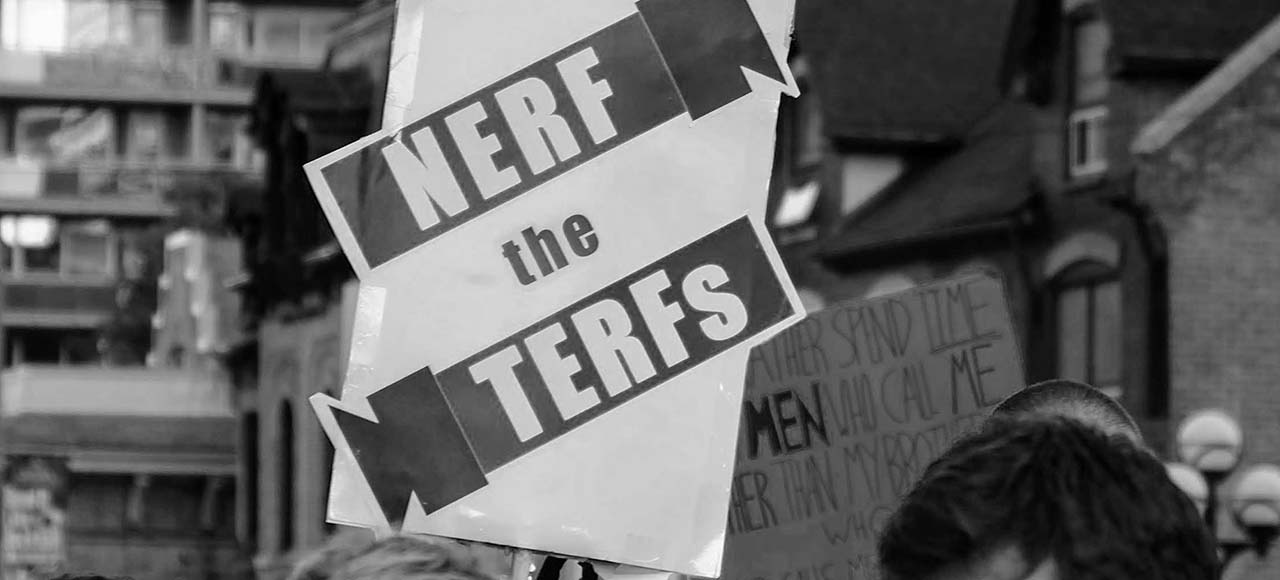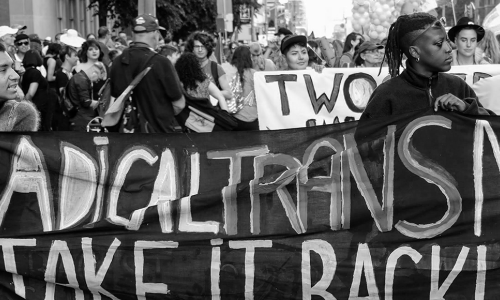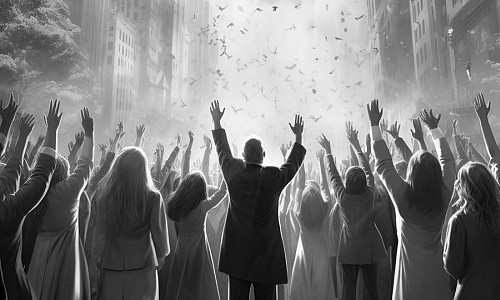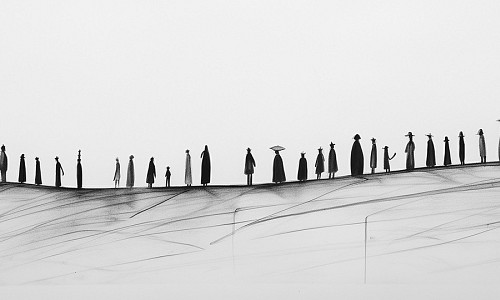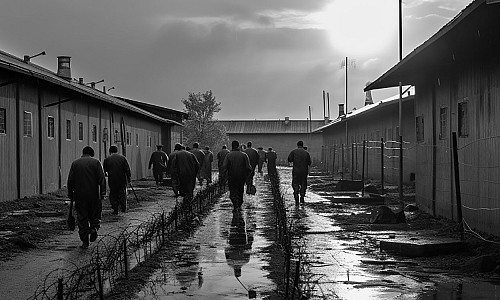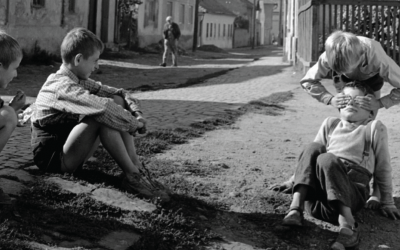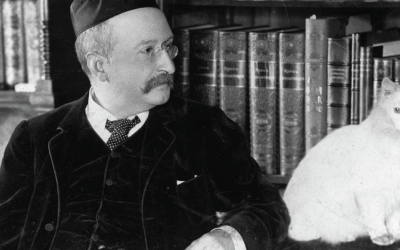Kerrie Grain looks at cancel culture 1970s-style and draws a comparison with the present day
In 2015, a change.org petition was launched urging Cardiff University to “cancel” Germaine Greer, who was to deliver the address for the eighth in their series of annual lectures. Facing accusations of transphobia and misogyny for her comments on trans people, quoted in the Guardian, Greer was more bemused than angry; more bewildered than frightened: “I don’t really know what I think of it. It strikes me as a bit of a put-up job really because I am not even going to talk about the issue that they are on about”. In the event, Greer’s lecture “Women and Power: The Lessons of the 20th Century” went ahead - with security officials posted inside and outside the theatre.
Any reader of this magazine who follows philosophy social media will doubtless be aware of efforts to “cancel” University of Sussex professor Kathleen Stock – indeed, to have her sacked from her position. Stock’s statement on free speech, which should have been presented in person at the Battle of Ideas on October 9th of this year was read in her absence after an anonymous group of students launched a campaign of harassment, threats and intimidation against Stock because of her views on biological sex, gender identity, sex-based and women’s rights. No small irony there. Harassment on campus, now being investigated by police, prevented her from appearing at the symposium.
How we did we arrive at this not-altogether-pleasant, intolerant destination? Cancel culture is by no means a new phenomenon. Throughout human history, societies have punished or ostracised those perceived as acting outside social norms and behaviours. In the information age, we have found new and inventive ways to punish and ostracise, but there have always been ways.
For an example from the academic world, let’s go back to the 1970s, and the publication of E. O. Wilson’s magnum opus, Sociobiology: The New Synthesis? The book was initially greeted with enthusiasm, with biologists, and social scientists already engaged in biology-accented research, favouring it with good reviews. However, a group called Science for the People, described in a letter from one of its readers as “a people’s science with feminist, Marxist ideology”, and the Sociobiology Study Group, a collection of students, researchers and scientists from the Boston area, including Wilson’s colleagues at Harvard University, Professors Stephen Jay Gould and Richard C. Lewontin, then stepped onto the stage.
In a famous letter published in the New York Review in November 1975, Gould, Lewontin, et al, claimed that human sociobiology – the idea that both culture and biology determine human behaviour – was scientifically unsupported, morally repellent, and politically dangerous. The letter drew a link between sociobiology and Nazi eugenics, and suggested the theory was motivated by a desire to maintain the societal status quo, ensuring the maintenance of privilege for those groups in society who already held it. It concluded with the suggestion that sociobiology needs to be taken seriously because it’s dangerous, noting that: “Wilson joins the long parade of biological determinists whose work has served to buttress the institutions of their society by exonerating them from responsibility for social problems.”
Following the publication of Wilson’s book, the Sociobiology Study Group and Science for the People established a formal association. Opposition to sociobiological explanations of human behaviour slowly gained traction. A campaign of leaflets (leaflets!) was led by Boston activists, teach-ins held to oppose sociobiology, and for a time a protester on Harvard Square called for Wilson’s dismissal.
The attacks on Wilson reached their height in 1978 at the annual meeting of the AAAS (American Association for the Advancement of Science) in Washington. As Wilson arrived to speak at a symposium on sociobiology, the atmosphere was already febrile. A demonstration was planned by the International Committee Against Racism (INCAR), who had alerted their members across the US to the event.
Several speakers presented their papers until eventually it came for Wilson to deliver his. As soon as he was introduced, a group of men and women burst on to the stage carrying anti-sociobiology placards, including at least one painted with a swastika. Members of INCAR poured a pitcher of water on Wilson’s head, chanting “Wilson, you’re all wet!” By today’s standards this might seem fairly innocuous, until you consider the group also chanted “Racist Wilson you can’t hide, we charge you with genocide”. The accusations were serious, and potentially disastrous for Wilson’s reputation and career. However, Science for the People, correctly discerning a public relations disaster in the making, were quick to dissociate themselves from INCAR’s actions, with Stephen Jay Gould using Lenin’s words to castigate the action as an “infantile disorder”.
This incident is remarkable for at least two reasons. The first is that Wilson, an academic and entomologist, in his words, “in love with ants”, was branded a fascist and accused of genocide. Hyperbole? Oh yes.
The second is that Science for the People considered the 1978 meeting a success. They believed it had shown Wilson’s ideas to be unjustified in scientific terms. It’s not clear, though, that the symposium attendees shared this assessment. Wilson received a standing ovation for his efforts.
There is an interesting sidenote to these events. The moderator of the 1978 meeting was anthropologist Margaret Mead. Two years earlier, at the annual meeting of the American Anthropological Association, a resolution to censure sociobiology had been defeated – by a narrow margin. “Book burning, we’re talking about book burning”, Mead had insisted, opposing the resolution.
Ironically, Mead herself was posthumously involved in a cancellation attempt. In her famous work, Coming of Age in Samoa, published in 1928, Mead had contrasted the Samoan experience of adolescence with the values governing American life. American attitudes and practices were repressive, arbitrary, exacting and stultifying, where the Samoan people were open, death was not hidden away, and attitudes to adolescent sex were liberal.
However, in 1983, Australian anthropologist, Derek Freeman, published a book, Margaret Mead and Samoa, that attacked Mead’s work. He argued that it was ideologically-driven, and that Mead had allowed herself to be hoaxed in the interviews by two young Samoan women who had spoken to her about sex: “Never can giggly fibs have had such far-reaching consequences in the groves of Academe”.
The American Anthropological Association (them again) was not allowing this blasphemy to go unchallenged, and it leapt to Mead’s defence, eventually holding its own symposium to discuss Freeman’s work at their 82nd annual meeting. He was not invited, and his work was dismissed as "poorly written, unscientific, irresponsible, and misleading". The anthropologists cancelling the anthropologist.
Let’s zoom forward to the present day to see what light these events shed on our current situation. An interesting point about the campaign against sociobiology is that it did not make Wilson feel threatened or frightened for his life. He did not receive death threats, very little hate mail, and certainly no rape threats. Things are different today. The culture of internet trolling, online bullying, and masked protests, makes it clear that while attempting to cancel those whose ideas we do not like, or less generously those people whom we do not like, we are quite prepared to reach new levels of unpleasantness and aggression, even terror.
As I began writing this piece, Kathleen Stock was still employed by the University of Sussex as a professor of philosophy. As I write this sentence, she has resigned her post, keen to leave the experiences of the last few years behind her, firmly resolved that her position has become untenable for her and her family. To the university’s credit, they stood by Stock, with the vice-chancellor expressing his hope that she would continue her work. In her book Material Girls, Kathleen Stock makes very plain that “Trans people deserve lives free from fear. They deserve laws and policies that properly protect them from discrimination and violence”. Yet Stock remains vilified as a transphobe, a dangerous “TERF” who makes trans people “unsafe”. Less than 24 hours ago, Stock announced that she has accepted a position at a new university in the US, the University of Austin, a university dedicated to those seemingly old-fashioned academic principles of free enquiry and truth-seeking. Good for her.
If the determination of women like Kathleen Stock, Jo Phoenix and Mary Beard, and their refusal to be silenced and cancelled, is used as a measure of cancel culture’s success, then cancel culture has not won and nor should we let it. These are not merely arguments of academic freedom, nor of free speech. Nor are they an issue of squabbling academics or students protesting every single thing, which in any case students have done since time immemorial. These are issues of dialogue, enquiry and above all, the principle of charity. Work should be engaged with on the basis of what is said, not on what is believed to be said; not on false beliefs and motives ascribed to the writer/academic/whoever; then responded to, and challenged, accordingly. Edward O. Wilson was not an author of genocide; Kathleen Stock explicitly advocates for trans people to live safe and equal lives. Cancel culture is not a new phenomenon but certainly new technologies exacerbate its harm, and allow for the exploitation of its harmful potential. It’s time to stop typing and online petitioning; it’s time to start listening and engaging. It’s time to cancel cancel culture.
Kerrie Grain is an associate editor of The Philosophers’ Magazine, and holds a postgraduate qualification in philosophy from the University of London.
You might also like...


